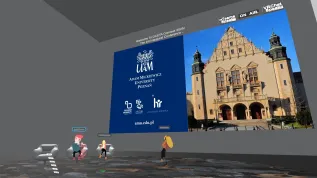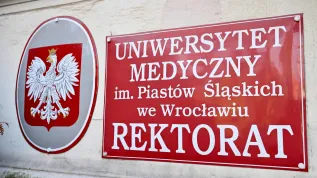
Changes in financing the university will not contribute to reductions, on the contrary - they will be an impulse to build staff in higher education institutions. The purpose of the new algorithm is to show that we are serious about our obligations to students - Deputy Minister of Science Teresa Czerwińska assured in an interview with PAP.
Until November 7 public consultation will continue on the new regulation of the Minister of Science and Higher Education, which is planned to enter into force in the beginning of 2017. It introduces a new way of distribution of base grants from the state budget among schools. The new algorithm will reduce the effect of "inheritance" of grants from year to year. In the current algorithm, up to 65 percent subsidy is based on the amount for the previous year - now this indicator is expected to drop to 50 percent. The new algorithm will reward, among other things, maintaining proper students/teachers ratio at universities. In addition, the subsidy would also be linked to the scientific category of the unit and the number of ongoing research projects.
The project has raised controversy in some circles. The Crisis Committee of Polish Humanities alarmed that the new algorithm could be disastrous for small and medium-sized universities, because it does not include a transitional period, which would allow universities to make the transition to a different model of competition. There were concerns that the new algorithm would result in large declines in subsidies for some colleges, and, as a result - to reductions.
Deputy Minister of Science and Higher Education Teresa Czerwińska emphasised in an interview with PAP that such concerns are irrational. She noted that according to the new algorithm, less money will go to those universities, where the number of teachers will be too small in relation to the number of undergraduate and graduate students. According to the draft regulation, there should be no more than 11-13 students and doctoral students per one lecturer at general academic universities. "How can you say that in this situation universities will reduce the number of teachers? The algorithm works in the opposite direction - it is an impulse for universities to built highly qualified staff" - noted Czerwińska.
According to Deputy Minister of Science, the algorithm also stimulates universities to ensure the quality of teaching. "This draft regulation shows that we are serious about our obligations to students - we want ensure the availability of staff, laboratories, teachers at a high level" - she noted.
The minister is convinced that the students will feel positive results of the changes in regulations. "It was a common situation that a student could not have direct contact with the teacher and the teaching process resembled +correspondence courses+. The new regulations on the distribution of subsidies will end the mass approach and start a serious treatment of students" - she believes.
According to Czerwińska, the changes will be beneficial to both full-time and part-time students (the algorithm uses the ratio between the lecturers and the number of all students and doctoral students). "We have no reason to treat part-time students differently. They also must have access to teachers and we need to ensure the quality of education at these courses. The situation, in which a part-time student would receives a +lesser diploma+ from the university, is unacceptable" - noted Deputy Minister of Science.
In connection with the new algorithm, there were calculations in the media, according to which the University of Lodz could lose up to 15 million zlotys under the new rules. In an interview with PAP Deputy Minister of Science and Higher Education questioned the calculation. "Maybe someone misplaced a comma in the calculation. Drops will certainly not be so large" - she assured. She said that compared to the data from last year, the decrease would be fractions of a percent, if it would take place at all in the case of the University of Lodz.
"Both this algorithm, as well as the previous one, are redistribution algorithms. This means that at a constant envelope there was and there will be offset - public universities compete for budgetary funds" - admitted Deputy Minister of Science.
Czerwińska explained, however, that the new algorithm has a "fail-safe". "It will not allow any university to lose more than 5 percent subsidy on an annual basis. This threshold will ensure the financial stability of universities" - she noted. She added that reaching the fail-safe threshold should be a serious warning for the university that significant changes are necessary.
Czerwińska reassured that according to the draft budget, in the next year more than 10.2 billion zlotys is reserved for grants in the field of educational activities in the budget of the minister responsible for higher education - about 132 million zlotys more than in 2016. This means a greater amount for distribution among the universities.
"In the consultation on the draft regulation we have already received many comments from the community - including a lot of positive feedback. We will analyse the comments carefully, we will address them, and then we will move the regulation for signature" - concluded Deputy Minister of Science.
PAP - Science and Scholarship in Poland, Ludwika Tomala
lt/ agt/ mrt/
tr. RL













